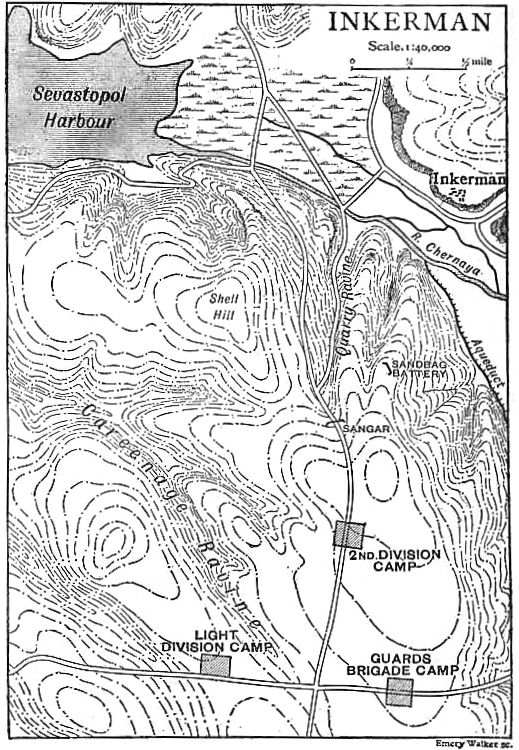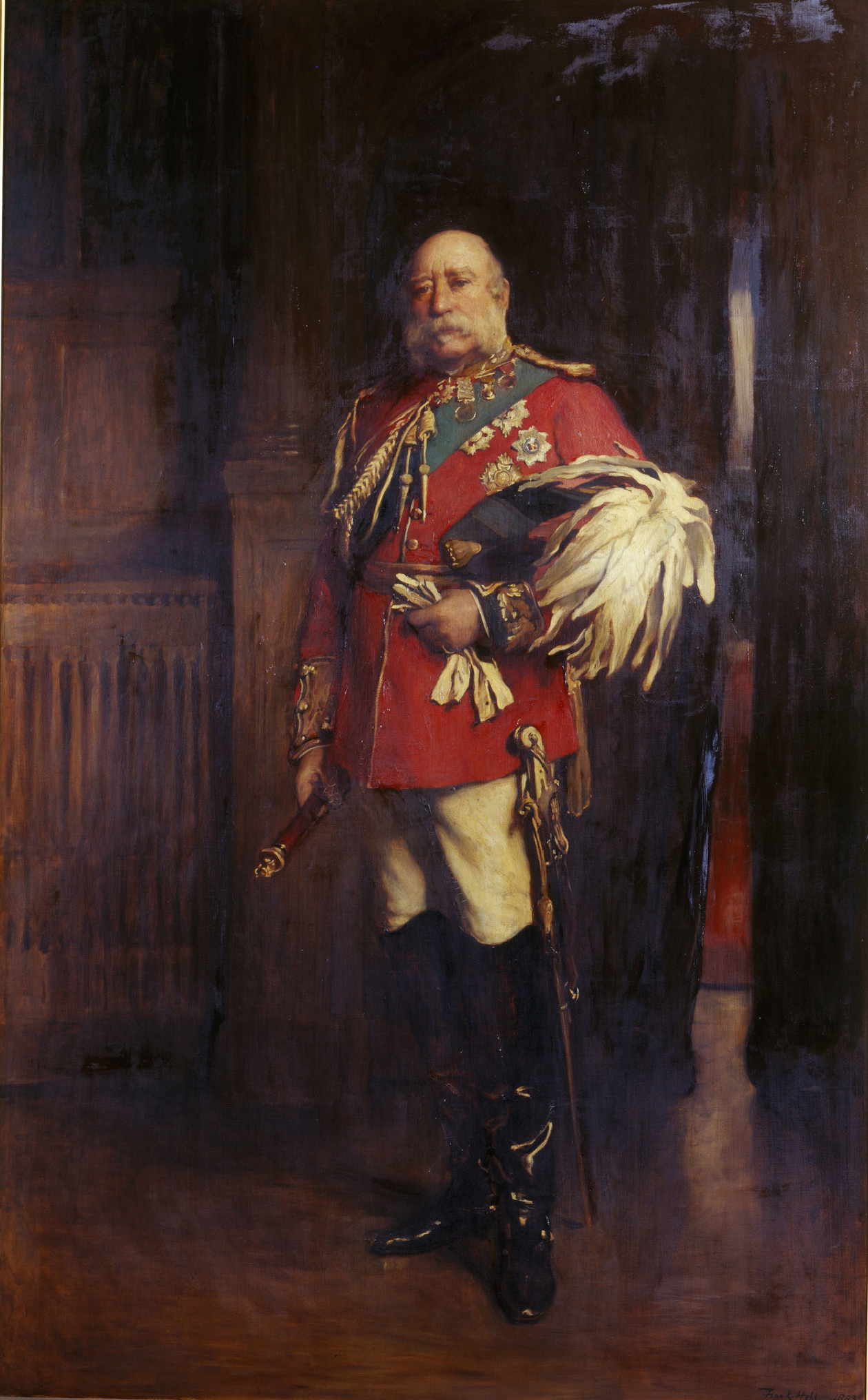|
George Buller
General Sir George Buller (1802 – 12 April 1884) was an English general officer of the British Army who served in the Rifle Brigade and as a commander of a brigade in the Crimean War. Life He was the third son of General Frederick William Buller of Pelynt and Lanreath in Cornwall, who had himself served with distinction in the 57th Regiment of Foot, 57th Foot in the Netherlands and the West Indies. George was gazetted a second lieutenant in the Rifle Brigade on 2 March 1820. The first twenty-five years of his career in the army were spent in a time of peace, and his marriage with Henrietta, daughter of General Sir John Macdonald (British Army officer, died 1850), John Macdonald, Adjutant-General to the Forces, helped his rapid promotion. He became Lieutenant (British Army and Royal Marines), lieutenant in March 1825; Captain (British Army and Royal Marines), captain, in August 1828; Major (United Kingdom), major, in December 1830; lieutenant-colonel in August 1835; and colonel ... [...More Info...] [...Related Items...] OR: [Wikipedia] [Google] [Baidu] |
Crimean War
The Crimean War, , was fought from October 1853 to February 1856 between Russia and an ultimately victorious alliance of the Ottoman Empire, France, the United Kingdom and Piedmont-Sardinia. Geopolitical causes of the war included the decline of the Ottoman Empire, the expansion of the Russian Empire in the preceding Russo-Turkish Wars, and the British and French preference to preserve the Ottoman Empire to maintain the balance of power in the Concert of Europe. The flashpoint was a disagreement over the rights of Christian minorities in Palestine, then part of the Ottoman Empire, with the French promoting the rights of Roman Catholics, and Russia promoting those of the Eastern Orthodox Church. The churches worked out their differences with the Ottomans and came to an agreement, but both the French Emperor Napoleon III and the Russian Tsar Nicholas I refused to back down. Nicholas issued an ultimatum that demanded the Orthodox subjects of the Ottoman Empire be placed ... [...More Info...] [...Related Items...] OR: [Wikipedia] [Google] [Baidu] |
Great Trek
The Great Trek ( af, Die Groot Trek; nl, De Grote Trek) was a Northward migration of Dutch-speaking settlers who travelled by wagon trains from the Cape Colony into the interior of modern South Africa from 1836 onwards, seeking to live beyond the Cape's British colonial administration. The Great Trek resulted from the culmination of tensions between rural descendants of the Cape's original European settlers, known collectively as ''Boers'', and the British Empire. It was also reflective of an increasingly common trend among individual Boer communities to pursue an isolationist and semi-nomadic lifestyle away from the developing administrative complexities in Cape Town. Boers who took part in the Great Trek identified themselves as ''voortrekkers'', meaning "pioneers", "pathfinders" (literally "fore-trekkers") in Dutch and Afrikaans. The Great Trek led directly to the founding of several autonomous Boer republics, namely the South African Republic (also known simply as the '' ... [...More Info...] [...Related Items...] OR: [Wikipedia] [Google] [Baidu] |
Southern Command (United Kingdom)
Southern Command was a Command of the British Army. Nineteenth century Great Britain was divided into military districts on the outbreak of war with France in 1793. By the 1830s the command included the counties of Kent and Sussex (the original Southern District during the Napoleonic Wars) as well as Bedfordshire, Northamptonshire, Oxfordshire and Buckinghamshire (the original South Inland District) and Hampshire, Wiltshire and Dorset (the original South-West District) and Gloucestershire, Worcestershire and Herefordshire (the original Severn District). The role of South-West District Commander, which was doubled hatted with that of Lieutenant-Governor of Portsmouth, was originally based at Government House in Grand Parade in Portsmouth. This building became very dilapidated and a new Government House was established in the High Street in Portsmouth in 1826. In January 1876 a ‘Mobilization Scheme for the forces in Great Britain and Ireland’ was published, with the ‘Act ... [...More Info...] [...Related Items...] OR: [Wikipedia] [Google] [Baidu] |
Lieutenant-general
Lieutenant general (Lt Gen, LTG and similar) is a three-star military rank (NATO code OF-8) used in many countries. The rank traces its origins to the Middle Ages, where the title of lieutenant general was held by the second-in-command on the battlefield, who was normally subordinate to a captain general. In modern armies, lieutenant general normally ranks immediately below general and above major general; it is equivalent to the navy rank of vice admiral, and in air forces with a separate rank structure, it is equivalent to air marshal. A lieutenant general commands an army corps, made up of typically three army divisions, and consisting of around 60 000 to 70 000 soldiers (U.S.). The seeming incongruity that a lieutenant general outranks a major general (whereas a major outranks a lieutenant) is due to the derivation of major general from sergeant major general, which was a rank subordinate to lieutenant general (as a lieutenant outranks a sergeant major). In contrast, i ... [...More Info...] [...Related Items...] OR: [Wikipedia] [Google] [Baidu] |
Major-general
Major general (abbreviated MG, maj. gen. and similar) is a military rank used in many countries. It is derived from the older rank of sergeant major general. The disappearance of the "sergeant" in the title explains the apparent confusion of a lieutenant general outranking a major general, whereas a major outranks a lieutenant. In the Commonwealth and in the United States, when appointed to a field command, a major general is typically in command of a division consisting of around 6,000 to 25,000 troops (several regiments or brigades). It is a two-star rank that is subordinate to the rank of lieutenant general and senior to the rank of brigadier or brigadier general. In the Commonwealth, major general is equivalent to the navy rank of rear admiral. In air forces with a separate rank structure (Commonwealth), major general is equivalent to air vice-marshal. In some countries including much of Eastern Europe, major general is the lowest of the general officer ranks, with no ... [...More Info...] [...Related Items...] OR: [Wikipedia] [Google] [Baidu] |
Battle Of Inkerman
The Battle of Inkerman was fought during the Crimean War on 5 November 1854 between the allied armies of United Kingdom of Great Britain and Ireland, Britain and Second French Empire, France against the Imperial Russian Empire, Russian Army. The battle broke the will of the Russian Army to defeat the allies in the field, and was followed by the Siege of Sevastopol (1854–1855), siege of Sevastopol. The role of troops fighting mostly on their own initiative due to the foggy conditions during the battle has earned the engagement the name "The Soldier's Battle." Prelude to the battle The allied armies of Britain, France, Sardinia, and the Ottoman Empire had landed on the west coast of Crimea on 14 September 1854, intending to capture the Russian naval base at Sevastopol. The allied armies fought off and defeated the Russian Army at the Battle of Alma, forcing them to retreat in some confusion toward the River Kacha. While the allies could have taken this opportunity to attack Se ... [...More Info...] [...Related Items...] OR: [Wikipedia] [Google] [Baidu] |
Battle Of The Alma
The Battle of the Alma (short for Battle of the Alma River) was a battle in the Crimean War between an allied expeditionary force (made up of French, British, and Ottoman forces) and Russian forces defending the Crimean Peninsula on 20September 1854. The allies had made a surprise landing in Crimea on 14September. The allied commanders, Maréchal Jacques Leroy de Saint-Arnaud and Lord Raglan, then marched toward the strategically important port city of Sevastopol, away. Russian commander Prince Alexander Sergeyevich Menshikov rushed his available forces to the last natural defensive position before the city, the Alma Heights, south of the Alma River. The allies made a series of disjointed attacks. The French turned the Russian left flank with an attack up cliffs that the Russians had considered unscalable. The British initially waited to see the outcome of the French attack, then twice unsuccessfully assaulted the Russians' main position on their right. Eventually, superior ... [...More Info...] [...Related Items...] OR: [Wikipedia] [Google] [Baidu] |
77th Regiment Of Foot
The 77th (East Middlesex) Regiment of Foot (The Duke of Cambridge's Own) was a line regiment of the British Army, raised in 1787. Under the Childers Reforms it amalgamated with the 57th (West Middlesex) Regiment of Foot to form the Duke of Cambridge's Own (Middlesex Regiment) in 1881. History Formation The regiment was raised by General James Marsh for service in India due to fears that war with France was imminent as the 77th (Hindoostan) Regiment of Foot in October 1787. In accordance with the Declaratory Act 1788 the cost of raising the regiment was recharged to the British East India Company on the basis that the act required that expenses "should be defrayed out of the revenues" arising there. First assembled in Dover in early 1788, the regiment arrived in India in August 1788, and saw action at the siege of Seringapatam in February 1792 in the Third Anglo-Mysore War and the capture of the Dutch settlements in Ceylon in 1795. It also saw action at the Battle of Seedaseer ... [...More Info...] [...Related Items...] OR: [Wikipedia] [Google] [Baidu] |
88th Regiment Of Foot (Connaught Rangers)
The 88th Regiment of Foot (Connaught Rangers) was an infantry Regiment of the British Army, raised in 1793. Under the Childers Reforms it amalgamated with the 94th Regiment of Foot to form the Connaught Rangers in 1881. History Formation The regiment was raised in Connaught by John Thomas de Burgh, 13th Earl of Clanricard as the 88th Regiment of Foot (Connaught Rangers), in response to the threat posed by the French Revolution, on 25 September 1793. The regiment was sent to join the Duke of York's army in the Netherlands in summer 1794 as part of the unsuccessful defence of that country against the Republican French during the Flanders Campaign. The regiment embarked for the West Indies in autumn 1795 and, after a difficult voyage, two companies took part in the capture of Grenada and the siege of Saint Lucia before returning to England in summer 1796.Cannon, p. 4 The regiment then embarked for India in January 1799 and arrived in Bombay in June 1800. The regiment sailed f ... [...More Info...] [...Related Items...] OR: [Wikipedia] [Google] [Baidu] |
19th Regiment Of Foot
19 (nineteen) is the natural number following 18 and preceding 20. It is a prime number. Mathematics 19 is the eighth prime number, and forms a sexy prime with 13, a twin prime with 17, and a cousin prime with 23. It is the third full reptend prime, the fifth central trinomial coefficient, and the seventh Mersenne prime exponent. It is also the second Keith number, and more specifically the first Keith prime. * 19 is the maximum number of fourth powers needed to sum up to any natural number, and in the context of Waring's problem, 19 is the fourth value of g(k). * The sum of the squares of the first 19 primes is divisible by 19. *19 is the sixth Heegner number. 67 and 163, respectively the 19th and 38th prime numbers, are the two largest Heegner numbers, of nine total. * 19 is the third centered triangular number as well as the third centered hexagonal number. : The 19th triangular number is 190, equivalently the sum of the first 19 non-zero integers, that is also ... [...More Info...] [...Related Items...] OR: [Wikipedia] [Google] [Baidu] |




